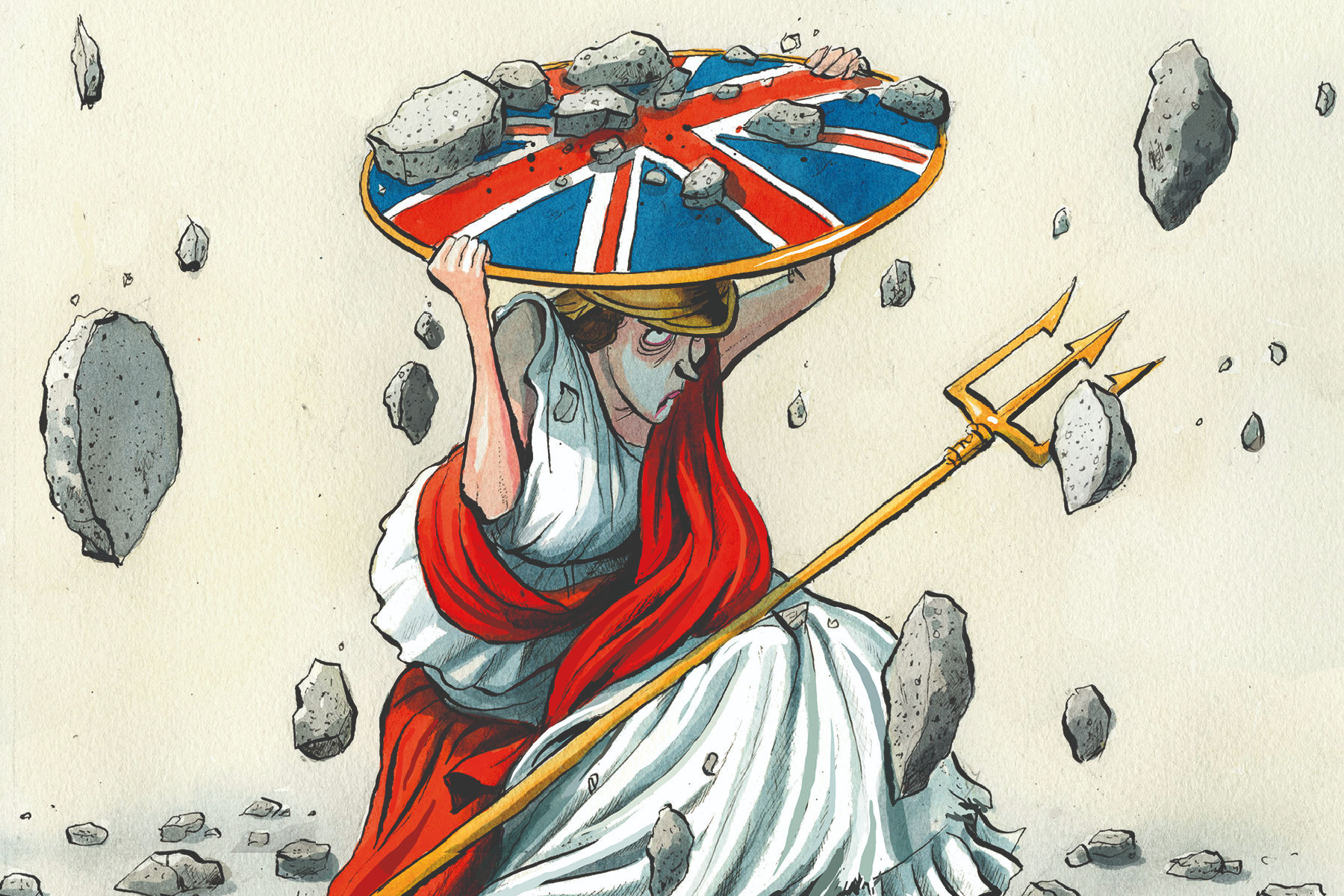Capital spending is the easiest target for the chopping block. Necessary upgrades to public buildings, the rail network, airports and roads can be covered up for quite some time. It’s not so easy to brush aside demands for higher salaries, more GPs, a bigger safety net and free childcare. Capital spending did indeed drop by 15 per cent in real terms in 2010-11 – as Brown intended, but David Cameron implemented.
This was the trick of Cameron and George Osborne’s government: ring-fence the daily spending of politically sensitive areas while cutting deeper into council funding and capital projects that would take longer to show signs of wear.
The cross-party conspiracy of neglect put school upgrades in the firing line too. The decision under Michael Gove to scrap Labour’s Building Schools for the Future investment programme – designed to see every secondary state school upgraded at a total cost of £55 billion – was justified by digging into the scheme’s problems. Ministers thought the pot of money was being raided by architects, pushing up the costs of building and repairs to unnecessarily high levels. That may have been true, but the government failed to replace the scheme with anything like the same level of investment. The result: on current trajectories, the average state school in England will get an upgrade every 400 years. The average lifespan of Raac roofing is about 30.
In hospitals as well, the strategy was to grab money from the capital budget to beef up day-to-day spending. At the height of austerity, more than £4 billion was diverted in this way, according to the King’s Fund think tank. Shortly before the pandemic, it reported on a ‘high-risk backlog’ – where repairs are needed to ‘prevent catastrophic failure’ or ‘deficiencies in safety liable to cause serious injury’. It may not be long before one of these failures takes the spotlight, leading to the kind of soul-searching triggered by the concrete crisis.
The irony of the austerity era is how much fiscal pain was inflicted in some areas, while the size of the state was barely reduced. Between 2010 and 2015, the government cut public spending by an average of just 0.15 per cent a year. The money saved by the brutal cuts to long-term infrastructure investment was not returned to the taxpayer or used to reduce public sector net debt, which has doubled to £2 trillion since the Tories came to power. Instead, it’s been used to make ever-loftier spending commitments, which is what MPs think the public want to hear.
…
Perhaps Cameron and May never expected the Tories to stay in power as long as they have. With hindsight, Osborne might have used a tenth of the HS2 budget to upgrade local transport, which would be up and running by now and could be something for his party to claim as a success. May – or Boris Johnson with his 80-seat majority – might have built some more homes too.
Instead, Rishi Sunak now must explain why, 13 years on, schools are unsafe, nothing gets built, and the country’s major institutions all seem to teeter on the brink of collapse. Because that’s what happens when short-term political decisions pile up: lots of money is spent, nothing much happens.
Now then, while this is possibly the closest I’ve seen the Spectator come to admitting that austerity is a complete failure, they will always come up short of fully admitting that the reason Britain is fucked right now is because of the economic philosophy they vocally advocated for.
They and their ilk are what broke it.
Exactly. They’re implying the money went on pay instead when public sector workers are earning around 25% less in real terms compared to 2010.
The money went on subsidies and tax cuts for the super-rich. Mostly invisible tax cuts via cutting funding for HMRC. Yes, the only revenue-generating department got cuts under ‘austerity’. It was not austerity, it was banditry.
In some ways they’re arguing that austerity wasn’t aggressive enough to get the job done properly.
There is definitely some memory holing going on, the bit implying capex cuts were used to fund increases in opex expenditure like pay rises is pure fantasy. Anyone who isn’t looking to be lied to knows that the current pay crisis in the public sector is due to a decade of pay cuts, not rises.
In reality, there were situations where councils had to maintain mandatory service provision, and their opex budgets had also been cut in to the bone, requiring further cuts to capex to allow a transfer of cash from one to the other. But we all know that isn’t what the Spec is wanting to say.
The Spectato will always find time to blame Labour for the Conservative’s catastrophic mishandling of the public finances.
I had to laugh at “cross-party conspiracy” - they produce a laundry list of the way the grifters in the Tory party screwed us and throw in PFIs as if that helps spread the blame equally when they clearly show how the Conservatives cancelled or downgraded Labour policies that would have at least partially addressed the current problems.
One of the first things they did when the coalition came to power was cancel the Building Schools for the Future programme, and the construction industry took a massive hit, resulting in an awful lot of pointless unemployment. This article claims that that stuff was exactly what Gordon Brown had planned. I’m about as skeptical about that claim as I am about anything that came from the holes of former Prat Clown Boris Johnson or former Presidunce Donald Trump.
“As Brown intended, but Cameron implemented” - that was really nice of them to implement their opponent’s policy of austerity, a policy they kept going on about at the time and still try to defend.
I’d say a significant part of what went wrong is influence by Kremlin and CCP propaganda. Just like getting Trump elected, they used social media to weaken their geopolitical rivals. They were thrilled to see a weakened EU.
You found nice scapegoats, to justify selfmade problems
Yeah, in the first place it needs to be looked at home outside influence could even do that. Because, there are systemic issues that let that happen. A democracy should have checks and balances to fighting something like that. And if it is so brittle that some Russian bribes can turn the country upside down, then you need to look at what went wrong in the democracy and how to fix that.
If it wasn’t the Russians it would be someone else. Britain needs to strengthen it’s democracy and sharpen it’s systems to minimize the impact of outside forces, not just blame outside forces for existing.
The Tories.





